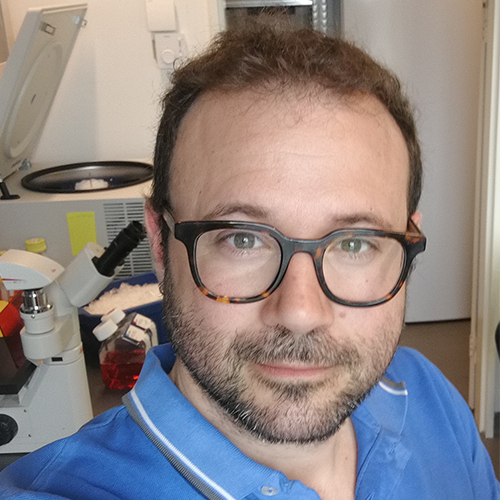
#IDIBELLconnect: Modeling cellular plasticity to regenerate the intestine
Jordi Guiu
Bellvitge Biomedical Research Institute (IDIBELL), Spain
Program for Clinical Translation of Regenerative Medicine of Catalonia (P-CMR[C])
29/01/2021
13:00-14:00
Microsoft Teams Meeting
Resum
Jordi Guiu
Cell Plasticity and Regeneration Group
The intestine is the tissue responsible for the digestion and absorption of nutrients. The small intestine is composed of crypt-villus structures, whereas in the colon crypts are connected to a smooth surface. Intestinal Stem Cells (ISC) are characterized by the expression of the Wnt target gene Lgr5 and are located at the bottom of the crypts. Elegant fate mapping studies have shown that during steady state Lgr5 ISCs are located at the apex of the cellular hierarchy. Upon injury remaining intestinal epithelial cells are reprogramed into a fetal-like state in order to facilitate regeneration, subsequently seeding a new population of ISCs via dedifferentiation. How this process is orchestrated at the cellular and molecular level remains poorly understood. We previously shown that cells in the fetal intestinal epithelium prior to functionalization and maturation can shift between seemingly differentiated and stem cell phenotypes. The results of this recent work showing that differentiated-like cells are extremely plastic and able to de novo generate stem cells have inspired us in order to develop an innovative research program that aims to use and expand on this knowledge in order to develop intestinal regenerative therapies. In particular we aim to improve quality of life for cancer survivors, which suffer side effects of radiotherapy including an acute and chronic inflammation of the intestine. In order to achieve this goal, we study the cellular and molecular mechanisms involved in epithelial recovery after radiation injury. Furthermore, we study the establishment of the chronic radiation-induced enteritis with a particular attention to the epithelial-immune cell crosstalk. In this IDIBELL seminar we will show the basis of our ambitious research program and we will discuss some preliminary data.
Biografia
Dr. Jordi Guiu studied BS in Biology (2006), Biochemistry (2007) and a Master of Science in Molecular Biotechnology (2008). Then he did a PhD in Biomedicine (2012) at Pompeu Fabra University to study the genetic circuitry that controls the establishment of hematopoietic stem cells. Subsequently he joined Dr. Kim B. Jensen lab (Copenhagen University) as a postdoc, were he obtained a Marie Curie fellowship (2014-2019). His postdoctoral work focused on the specification of intestinal stem cells during development using fate mapping technologies, state-of-the-art imaging, biophysical modeling and a plethora of sequencing techniques. In 2019, Dr. Guiu was appointed Assistant Professor in Copenhagen University. In September 2020, he joined the P-CMRC/IDIBELL as independent group leader.
